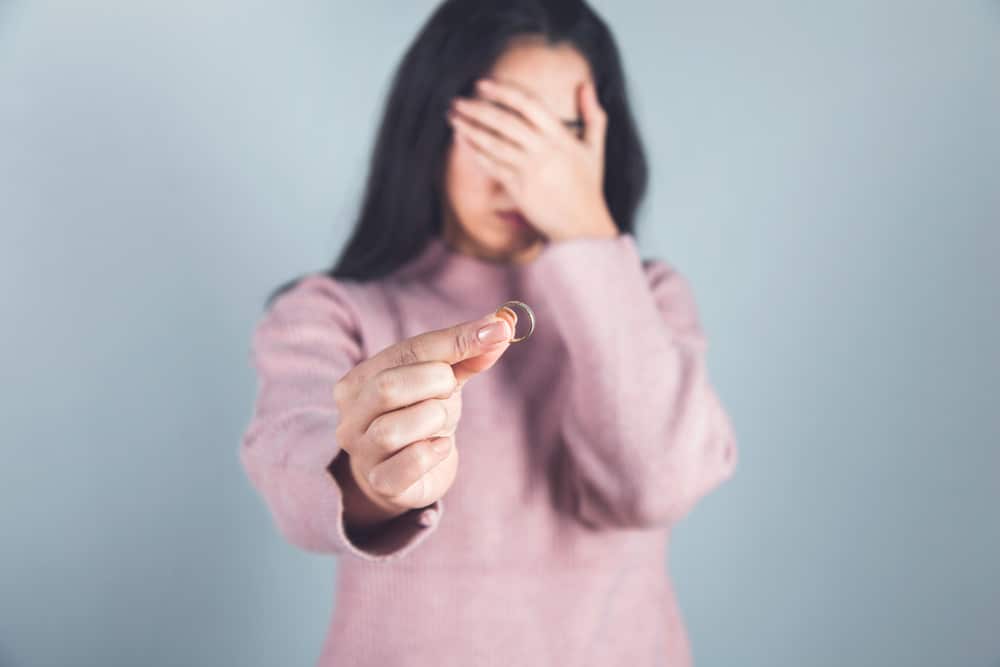Guilt and Shame in Cheating: A Psychological Exploration

As I sat in my office one day, a cup of half-drunk coffee by my side, my mind got to wandering about the rich tapestry of human emotions. One thread stood out, twisted and tangled in knots of complexity – the emotions of guilt and shame in cheating. Now, don’t get me wrong, I’m not planning any clandestine affairs, nor am I moonlighting as a private investigator. I am just fascinated by the psychology behind it all – the why, the how, and the aftermath.
Cheating – a word that instantly brings a sour taste to the mouth. It’s like biting into a lemon when you’re expecting an apple. Cheating, infidelity, unfaithfulness, having an affair – call it what you want – it’s a phenomenon that has been around as long as relationships themselves. And so have the accompanying feelings of guilt and shame. These are emotions that anyone would rather avoid, like that awkward conversation about where babies come from with a 5-year-old. But just like that chat, these feelings are unavoidable in certain situations.
Infidelity, by its very nature, is a breach of trust. It’s like a stab in the back, followed by a twist of the knife. It hurts those involved, but here’s the kicker – the pain isn’t one-sided. The cheating party too often grapples with guilt and shame, emotions so overwhelming that they could give the world’s scariest roller coaster a run for its money.
In this exploration, I intend to pull back the curtain and shine a light on these oft-ignored emotions. You might ask why. Why focus on the cheater’s emotions? Well, it’s because understanding is the first step towards empathy and healing. As I delve into this topic, I’m going to introduce you to the psychological underpinnings of guilt and shame in cheating – the psychological profiles, the long-term effects, and the professional interventions. It’s going to be a bit like going on a safari, but instead of spotting the Big Five, we’re on the lookout for big emotions and bigger revelations.
I aim to provide valuable insights not just for professionals working with individuals grappling with guilt and shame after infidelity, but also for those who find themselves in this emotional quagmire. Throughout the article, I’ll be your guide, leading you through the labyrinth of guilt and shame, helping you understand these emotions in a new light. So, buckle up, keep your arms and legs inside the vehicle at all times, and prepare for a journey deep into the human psyche. And who knows, by the end, we might just learn how to turn lemons into lemonade! (or maybe orange to renegade, wait what?)
Defining Guilt and Shame
It’s high time we get up close and personal with the stars of our show – guilt and shame. Now, these two might sound like the world’s worst superhero duo, but they’re crucial when it comes to understanding human emotions, particularly in the context of cheating.
Guilt vs Shame: The Emotional Tag-Team
Guilt is like that nagging friend who keeps poking you, reminding you that you’ve messed up. It’s a gnawing feeling of regret about something you’ve done. Think of it as the emotional equivalent of stepping on Lego barefoot in the middle of the night. Ouch! It’s connected directly to a specific action, like cheating on a partner. You feel guilt because you know you’ve done something wrong.
Shame, on the other hand, is a bit more sinister. It’s the emotional version of a boxing match against an invisible opponent. You know you’re getting hit, but you’re not quite sure why or by what. It’s a feeling of embarrassment, humiliation, or disgrace about who you are. It’s less about what you’ve done and more about how you perceive yourself.
The Psychological Significance of Guilt and Shame
You might be wondering why we’re spending time getting to know guilt and shame, particularly in the context of cheating. It’s not like they’re the life of any party. However, they’re incredibly important in our psychological makeup.
Guilt, despite its reputation as a party pooper, can actually be a positive force (surprising, right?). It’s a moral compass, pointing out when we’ve strayed off the path. It helps us take responsibility for our actions and can guide us towards making amends. It’s like that brutally honest friend who tells you when you have spinach stuck in your teeth – uncomfortable but helpful.
Shame, though, is a trickier beast. It doesn’t just point out our mistakes; it makes us question our worth. It whispers that we are the mistake. In the context of cheating, it can be particularly destructive. A person who feels shame may begin to believe they are fundamentally flawed because they cheated.
The dance of guilt and shame in cheating is a complex tango. Understanding these emotions can provide insights into the aftermath of infidelity, helping us navigate the maze of feelings that follow such a transgression.
The Psychology of Cheating
Alright, now that we’ve got our heads wrapped around guilt and shame, let’s delve into the murky waters of the psychology of cheating. It’s a bit like understanding why anyone would willingly choose to eat a durian fruit – it’s complex, a little stinky, and not everyone’s cup of tea.
The ‘Why’ Behind Cheating
Understanding why people cheat is about as straightforward as navigating a corn maze blindfolded. There isn’t a one-size-fits-all answer. Some cheat out of dissatisfaction or unhappiness in their current relationship. It’s like when you’re on a diet, but that chocolate cake in the fridge keeps calling your name. You know you shouldn’t, but the temptation is just too strong.
Others cheat out of a need for validation or a desire for novelty. The excitement of signing up to affair dating sites and meeting new partners can be very attractive to some! It’s also a bit like when you’ve got a perfectly good car, but you see the shiny new model at the dealership and think,
“Why not?”
And of course, there are those who cheat because they can, like a cat knocking a vase off a shelf just to watch it shatter.
Common Psychological Profiles of Cheaters
If cheating were a movie, it’d have a diverse cast of characters. You’ve got the thrill-seekers, those who get a kick out of the adrenaline rush of sneaking around. Then there are the validation-seekers, who cheat to feel wanted or attractive. Let’s not forget the escapists, who cheat to distract themselves from their problems, much like burying your head in the sand (but with more consequences).
Then there are those cheaters(that you never want to date) with personality disorders or traits like narcissism or Machiavellianism. These folks view cheating as just another way to get what they want, like a kid in a candy store with a stolen credit card. Understanding these profiles isn’t about making excuses for cheaters. It’s about gaining insight into the various factors that lead people down this path.
Guilt and Shame’s Role in Cheating
Now, let’s bring guilt and shame back into the picture. These two aren’t just the aftermath of cheating – they often play a crucial role in the act itself. The anticipation of guilt can sometimes deter a person from cheating, like imagining the aftermath of eating an entire pizza by yourself. However, when the guilt doesn’t outweigh the perceived benefits, infidelity can occur.
Shame, on the other hand, is a bit like a shadowy figure lurking in the background. A person might cheat to escape feelings of shame in their current relationship, only to have these feelings intensified after the act.
Guilt After Cheating
Now, let’s dig into the meat of this emotional sandwich – guilt after cheating. It’s like the hangover after a night of questionable decisions – painful, filled with regret, and making you swear you’ll never do it again (until the next time).
The Psychological Impact of Guilt Post-Infidelity
Once the dust settles after infidelity, guilt often sets in like an unwelcome houseguest overstaying its welcome. The psychological impact of guilt post-cheating can be intense, like trying to enjoy a picnic while a swarm of bees buzzes around your head. It’s distracting, stressful, and can make it hard to focus on anything else.
Guilt can lead to feelings of anxiety and depression, a bit like a gloomy rain cloud following you around on an otherwise sunny day. It can cause sleep disturbances (who can sleep when guilt is throwing a midnight rave in your brain?), decreased self-esteem, and even physical symptoms like headaches or stomach issues. It’s like a multi-level marketing scheme of discomfort and distress – the gift that keeps on giving.
Manifestations of Guilt: A Few Case Studies
Let’s look at some examples to illustrate how guilt shows up after cheating. Take the case of Sarah, a 35-year-old woman who cheated on her husband. Sarah found herself riddled with guilt that manifested in constant apologies, even for things that had nothing to do with her infidelity. It was like she was trying to set a world record for saying “I’m sorry.”
Then there’s James, a 42-year-old man who cheated on his wife. James’s guilt manifested as overcompensation in his relationship, showering his wife with gifts and attention, as if he could buy his way out of the guilt.
These examples goes to show how common cheating in marriage is and purely demonstrates the length individuals will go to cope with the crushing weight of guilt after cheating. It’s like trying to mop up a flood with a handful of paper towels – desperate, exhausting, and largely ineffective.
Coping Mechanisms and Their Effectiveness With Guilt
There are as many ways to cope with guilt as there are flavors of ice cream. Some people, like Sarah, apologize profusely. Others, like James, overcompensate in an attempt to make up for their mistakes.
Some seek professional help, like therapy or counseling, to navigate their guilt. It’s like hiring a guide for a trek through a dense jungle – someone who knows the way and can help you avoid the dangerous pitfalls.
Other coping mechanisms include self-forgiveness exercises, honesty and communication with the affected partner, and focusing on personal growth and learning from the experience. After all, as the saying goes, when life gives you lemons, make lemonade. Or in this case, when life gives you guilt, make it a learning opportunity.
Shame After Cheating
Just when you thought we were done dealing with emotional monsters, along comes shame, guilt’s ugly cousin. Post-infidelity, shame is like a bad sunburn – it’s uncomfortable, it’s visible, and it makes every movement a bit more painful.
The Psychological Impact of Shame Post-Infidelity
Shame, unlike guilt, isn’t content with just making you feel bad about a specific action. No, it wants to make you feel bad about yourself. It’s like that mean spirited gym teacher from middle school, always ready to point out how you’re not quite good enough.
The psychological aftermath of shame after cheating can be as devastating as a hurricane, leaving emotional wreckage in its wake. It can result in feelings of worthlessness, inadequacy, and a profound sense of being flawed. It’s like carrying around a 50-pound backpack filled with “I’m not good enough” bricks.
This can lead to increased risk of anxiety, depression, and even suicidal ideation. It’s like being stuck in a dark tunnel with no sign of the light at the end.
Manifestations of Shame: A Few Case Studies
To better understand the manifestation of shame, let’s take a gander at some case studies. Meet Mark, a 45-year-old who cheated on his partner. Post-infidelity, Mark’s shame manifested in severe social withdrawal. He became the human equivalent of a turtle, retreating into his shell at the first sign of social interaction.
Then we have Lisa, a 30-year-old woman who had an affair. Lisa’s shame made her overly critical of herself, finding fault in everything she did, from her work performance to her choice of breakfast cereal. It’s like having a live-in critic whose favorite hobby is highlighting your every shortcoming.
Coping Mechanisms and Their Effectiveness With Shame
Coping with shame is about as easy as herding cats – it requires patience, a gentle touch, and the understanding that you’re going to get scratched a few times.
Some people might try to ignore or avoid their feelings of shame, a bit like trying to ignore a grizzly bear in your living room. Spoiler alert: it doesn’t work. Others might become defensive or aggressive to protect their fragile self-esteem.
More productive strategies include seeking professional help, such as therapy, to unpack and process these feelings. It’s like getting a tour guide for the rocky terrain of your inner psyche.
Self-compassion exercises can also be beneficial. These are like emotional Band-Aids, helping to heal the wounds of shame. Lastly, honesty and open communication with the affected partner can be a crucial part of the process.
The Interplay of Guilt and Shame in Cheating
Hold onto your hats, folks, because we’re about to dive into the swirling whirlpool where guilt and shame meet – the aftermath of infidelity. This is where these two emotional titans come to tango, making the dance floor of our minds a complex, intricate, and sometimes, downright confusing place.
A Tango of Emotions: Guilt and Shame Post-Infidelity
Think of guilt and shame as the salt and pepper of the emotional spice rack. On their own, they add a distinct flavor, but when combined, they create a whole new taste experience. Guilt says, “I did something bad,” while shame chimes in with, “I am bad.” It’s like being scolded by your grandmother, then having your dog look at you with disappointment. Ouch.
In the aftermath of cheating, these two often go hand in hand, intertwining like ivy around a tree trunk. Guilt can lead to shame, especially if the infidelity is discovered and the cheater is ‘shamed’ by their partner or society. On the flip side, existing feelings of shame (think: “I’m not a good partner“) can lead to guilt when one’s actions (cheating) confirm this negative self-view. It’s like a psychological game of ping-pong with your self-esteem as the ball.
Healing When Both Guilt and Shame are Involved
When guilt and shame both show up to the post-cheating party, the psychological healing process becomes a tad more complex – like trying to solve a Rubik’s cube while juggling.
Dealing with guilt often involves making amends and learning from the mistake. It’s like cleaning up after you’ve accidentally spilled a glass of milk – it’s messy, it’s inconvenient, but it’s necessary.
But when you add shame into the mix, there’s an extra layer to tackle – your sense of self. This is where compassion comes in, treating yourself with the same kindness and understanding you’d offer a friend who’s messed up. It’s like giving yourself a warm hug, even when you feel like you don’t deserve it.
Therapy can be a lifesaver here, providing a safe space to untangle these knotted emotions. It’s like having a professional detangler for the matted hair of your psyche.
And let’s not forget the role of open, honest communication with the affected partner. It’s like taking off a band-aid – it might sting a bit, but it’s necessary for healing.
Guilt and Shame: The Impact on Relationships
If guilt and shame were guests at a party, they’d be the ones double-dipping in the salsa and spilling drinks on the carpet. They’re messy, they’re disruptive, and they have a knack for making things complicated, especially when it comes to relationships.
The Guilt-Shame Cocktail: Impact on the Cheater’s Relationship
In the landscape of a relationship, guilt and shame are like a pair of unruly bulldozers, capable of creating some serious damage. Post-cheating, these emotions can transform the relationship into a minefield, where each step triggers an explosion of tension, mistrust, and hurt.
Guilt might manifest in over-apologizing, being overly accommodating, or even avoiding the partner to escape the guilt-ridden reminders. It’s like being haunted by a ghost that only you can see, a spectral presence whispering,
“Remember what you did?”
Shame, on the other hand, is a bit sneakier. It can lead to self-isolation, feeling unworthy of love, or even pushing the partner away. It’s the emotional equivalent of wearing a “kick me” sign on your back, except you’re the one doing the kicking.
The Ripple Effect: Impact on Relationships with Others
The thing about guilt and shame is that they don’t like to stay confined to one area of your life. They’re like those pesky garden weeds, popping up where you least expect them.
In the aftermath of cheating, these emotions can ripple out, impacting relationships with family, friends, and even co-workers. You might find yourself withdrawing from social events, being overly defensive, or struggling with feelings of unworthiness. It’s like carrying around a heavy suitcase of ‘I messed up,’ and it’s exhausting.
Family and friends might feel caught in the crossfire, unsure of how to navigate the turbulent waters of your guilt and shame. It’s like being invited to a game of dodgeball where no one told you the rules, and everyone seems to be aiming at you.
In some cases, guilt might even lead you to confess to these third parties, seeking absolution or understanding. But remember, confession might be good for the soul, but it can be hard on the ears, especially if those ears weren’t prepared for the barrage of your guilt-laden revelations.
The Long-Term Psychological Effects
If guilt and shame were music, they’d be that catchy tune you can’t get out of your head, playing on repeat and keeping you awake at night. They’re the long-playing records in the jukebox of our psyche, often continuing to spin long after the initial act of cheating.
Guilt and Shame: The Unwanted Houseguests
Like those relatives who overstay their welcome during the holidays, guilt and shame can linger long after their initial arrival. Their bags are unpacked, they’ve made themselves at home, and they seem to have no intention of leaving.
The long-term effects of guilt and shame following infidelity can be as subtle as a whisper or as blatant as a shout. Guilt can lead to chronic stress, regret, and an ongoing sense of remorse. It’s like having a constant reminder of your transgressions, a sticky note on your conscience that says,
“Hey, remember when cheated on me with the mailman?“
Shame, on the other hand, can burrow deeper, impacting your self-esteem and self-perception. It’s like a constant cloud over your head, raining on your self-worth parade.
These feelings can manifest in physical symptoms too, like insomnia, loss of appetite, or even more serious health issues due to chronic stress. It’s like your body decided to join the ‘remind-me-of-my-mistakes’ party.
Psychological Recovery and Resilience: The Exit Strategy
But fear not, dear reader! Guilt and shame might be stubborn guests, but they’re not permanent residents. There are strategies for showing these pesky emotions the door and reclaiming your psychological well-being.
Therapy is like the eviction notice for guilt and shame. A good therapist can provide the tools and strategies to deal with these feelings, helping you unpack the baggage they’ve left in every room of your mental home.
Practicing self-forgiveness is another key step. It’s like extending an olive branch to yourself, acknowledging that you messed up, but that one mistake doesn’t define you. It’s the art of turning that guilt-fueled “I did something bad” into a more shame-resilient
“I did something bad, but I’m not a bad person.”
And let’s not forget the power of time. It’s the ultimate cleaner, gradually sweeping away the debris of guilt and shame. But remember, time is like a snail – it takes its sweet time. So, patience is key here.
Professional Interventions and Therapeutic Strategies
When dealing with guilt and shame, therapists are like the Ghostbusters of your mental specters. They’re armed with the tools, the knowledge, and the snappy one-liners to help you navigate the haunted house of your psyche.
Calling in the Cavalry: How Mental Health Professionals Approach Guilt and Shame
Mental health professionals see guilt and shame as an emotional puzzle, a jigsaw that’s a bit jumbled, but not unsolvable. It’s like being handed a Rubik’s cube that’s been mixed up by a particularly mischievous toddler.
In the context of cheating, therapists can help to differentiate between these two emotions and understand their sources. It’s like being a detective in your own emotional crime scene, sorting through the clues to figure out “whodunit.”
Cognitive-behavioral therapy (CBT) is one approach often used. It’s like having a personal trainer for your thoughts, helping you identify and challenge the guilt and shame-based beliefs that have you doing mental somersaults.
Evidence-Based Strategies: The Tools of the Trade
Therapists aren’t just winging it when it comes to dealing with guilt and shame in cheating. They’ve got a whole toolkit of evidence-based strategies, honed by research and refined by practice.
One such tool is mindfulness, a practice of non-judgmental awareness of the present moment. It’s like giving your mind a timeout, a chance to just be without the constant chatter of guilt and shame.
Another strategy is self-compassion, the practice of being kind to oneself in instances of pain or failure. It’s like being your own best friend, offering yourself a comforting word or a supportive shoulder, even when guilt and shame are trying to crash your self-love party.
Then there’s exposure therapy, a method used to reduce the power of shame by gradually and repeatedly bringing the shameful event to mind in a safe environment. It’s like slowly turning up the volume on your favorite song, allowing your ears to adjust to the noise until it’s just another tune on your mental playlist.
Lastly, there’s forgiveness therapy, which aims to replace negative emotions with understanding, empathy, and compassion. It’s like giving your guilt and shame a one-way ticket out of town, and waving them goodbye with a forgiving smile.
Insights for those Affected
If guilt and shame were dishes at a potluck, they’d be the ones that no one wants to try but everyone ends up taking a serving of. They’re universal, they’re complex, and when it comes to infidelity, they’re all too common.
Practical Advice: Navigating the Maze of Guilt and Shame
Walking the path of guilt and shame in cheating is like trying to navigate a labyrinth in the dark. It’s tricky, it’s confusing, and you might bump into a few walls along the way. Don’t worry fam, I’ve got a few tricks up my sleeve to help you find your way.
First off, recognize your feelings. Guilt and shame are like pesky door-to-door salespeople, they’re easier to deal with when you acknowledge them rather than pretending you’re not home.
Then, practice self-forgiveness. It’s like giving yourself a get-out-of-jail-free card, a reminder that everyone makes mistakes and it’s okay to move on.
And remember, seeking professional help is not a sign of weakness. It’s like calling in a plumber when your pipes are clogged. Sometimes, you need a professional to help you sort through the mess.
Resources for the Journey: Your Survival Kit
In the wilderness of guilt and shame, resources are like your survival kit, filled with tools to help you navigate the tricky terrain. Here are a few that might come in handy.
Books can offer insight, guidance, and a comforting sense of “I’m not alone in this.” Brene Brown’s “Daring Greatly“ is an excellent exploration of vulnerability, guilt, and shame. It’s like having a roadmap for your emotional landscape.
Online resources can offer help at your fingertips. Websites like PsychCentral and Verywell Mind are packed with articles, advice, and tools for understanding and dealing with guilt and shame.
Support groups, both online and in-person, can provide a sense of community and understanding. They’re like a safety net, reminding you that you’re not alone in your experiences.
Bringing it Home: Unmasking Guilt and Shame in Cheating
Well, my friends, we’ve been on quite a journey, haven’t we? We’ve navigated the labyrinth of guilt and shame, we’ve unpacked the psychology of cheating, and we’ve explored the long-term effects and potential interventions for these sticky emotions. It’s been a bit like a rollercoaster ride through the theme park of the human psyche, filled with twists, turns, and a few unexpected drops. But I hope you’ve found the ride enlightening, if not a little entertaining.
So, why did I invite you on this emotional thrill ride in the first place? Well, guilt and shame in cheating are like the boogeyman of the emotional world. They’re often hidden in the shadows, masked by denial, confusion, or simply a lack of understanding. But by shining a light on these emotions, by demystifying them and exploring their depths, we can start to understand them, cope with them, and ultimately, overcome them. It’s like realizing the boogeyman was just a pile of clothes in the corner of your room all along.
But why does any of this matter? Why should we care about understanding guilt and shame in cheating? Well, like a pesky itch or a catchy tune, these emotions don’t just go away because we ignore them. They’re part of the human experience, and by understanding them, we can better navigate our emotional landscape, improve our relationships, and foster a healthier mental state. It’s like being handed a map and compass in the wilderness of our emotions.
So here we are, at the end of our journey, standing on the peak of understanding and looking back at the path we’ve traversed. We’ve taken guilt and shame, those pesky hitchhikers of the infidelity journey, and we’ve looked them in the eye. We’ve dissected their role in cheating, we’ve explored their long-term effects, and we’ve delved into the professional interventions and therapeutic strategies that can help us deal with them. And let’s not forget the practical advice and resources we’ve collected along the way, like souvenirs from our emotional voyage.
My hope is that you’ve found this exploration of guilt and shame in cheating enlightening, perhaps even a little entertaining, and above all, helpful. Because navigating the human psyche shouldn’t be a solo journey. It should be a shared exploration, filled with curiosity, humor, and a healthy dose of self-compassion. So, let’s keep exploring, keep learning, and keep supporting each other on this fascinating journey we call being human.
Guilt and Shame in Cheating FAQs
Why do people cheat even when they know they’ll feel guilt and shame?
Cheating is a complex behavior often driven by a variety of factors, including dissatisfaction, lack of emotional or physical needs being met, or personal issues like low self-esteem or impulse control. Even knowing the potential for guilt and shame, some people may still cheat due to these underlying issues.
Can guilt and shame after cheating be completely eliminated?
While it’s unlikely to completely eliminate these emotions after an event like cheating, with time, understanding, and potentially professional help, individuals can learn to manage and cope with guilt and shame effectively.
How can therapy help in dealing with guilt and shame after cheating?
Therapy provides a safe and non-judgmental space to explore these emotions, understand their roots, and develop effective strategies to manage them. Techniques like Cognitive Behavioral Therapy (CBT) and mindfulness practices can be particularly effective.
Is it normal to feel guilt and shame after cheating?
Absolutely, guilt and shame are common emotional responses following infidelity. They’re part of our moral compass and signal that we’ve acted in a way that contradicts our values. If you don’t feel guilty after cheating, it might be a sign that you’re grappling with deeper emotional or psychological issues.
How does guilt and shame from cheating affect relationships?
Guilt and shame can create barriers to communication, intimacy, and trust in a relationship. However, if acknowledged and addressed, these emotions can also serve as a catalyst for deeper understanding and growth in the relationship.
Can a relationship survive infidelity and the resulting guilt and shame?
Yes, it’s possible, although it requires hard work, open communication, forgiveness, and potentially professional guidance. Every relationship and situation is unique, so there’s no one-size-fits-all answer.
What resources are available for someone dealing with guilt and shame after cheating?
Numerous resources exist, ranging from self-help books and online articles to professional therapy and support groups. It’s important to seek help when needed and remember that you’re not alone in this journey.
My Go-To Platform for Flings, Affairs, and MILFs
Looking for top-notch flings, affairs, or MILFs? Skip the rest, Ashley Madison is the gold standard. Zero bots, zero fakes—just real connections. I've scored big in multiple cities. Sign up now, it's FREE!














